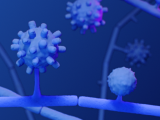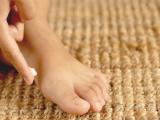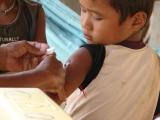Jan 14, 2013
Novel coronavirus discovery renews questions about virus sharing
As the World Health Organization (WHO) convened a technical meeting today to discuss the novel coronavirus recently discovered in the Middle East, the Saudi Arabian government remained unhappy about the handling of the discovery, which has renewed questions about intellectual property rights associated with viruses, says a news report today in Nature. Microbiologist Ali Mohamed Zaki isolated and cultured the virus from a patient in Saudi Arabia in June and identified it as a coronavirus, the story recounts. He mailed a sample to Dutch virologist Ron Fouchier, PhD, who determined it was a novel strain. Researchers who want samples of the virus now must sign a material transfer agreement with Fouchier's institution, Erasmus Medical Center (EMC), which exerts no ownership rights over the virus itself but rather over things like tests and vaccines based on the genetic sequencing that Fouchier did. Saudi authorities complain that Zaki did not keep them properly informed about his work, but Zaki insists that he complied with standard procedures. Saudi officials resent that EMC controls access to samples of the virus even though it was first isolated in Saudi Arabia. Ziad Memish, the Saudi deputy minister of public health, told Nature there is a need for a global agreement about ownership and sharing of virus samples. Last year the WHO completed an agreement dealing with sharing of H5N1 avian flu virus samples, but it doesn't cover other kinds of viruses, the story noted. The novel coronavirus has caused 9 known illnesses and 5 deaths in Saudi Arabia, Qatar, and Jordan.
Jan 14 Nature story
Related Oct 23, 2012, CIDRAP News item
CDC reports 14 more steroid-linked fungal infections
The US Centers for Disease Control and Prevention (CDC) today reported 14 new fungal infections linked to contaminated injectable steroids, including 4 more deaths, since its last update a week ago. The outbreak total has climbed to 678 infections and 44 deaths. The number of affected states remained the same at 19. Of the cases, 258 were meningitis, 117 involved spinal or paraspinal infections with meningitis, 6 involved stroke without lumbar puncture, 268 were paraspinal or spinal infections only, 28 were peripheral joint infections only, and 1 involved a paraspinal or spinal infection along with a peripheral joint injection. The infections and deaths have been linked to contaminated methylprednisolone acetate from New England Compounding Center in Framingham, Mass.
Jan 14 CDC update
Small kids have fewer local reactions with DTaP vaccine in thigh
A study involving 1.4 million children revealed that those aged 12 to 35 months were less apt to have a medically attended reaction to the DTaP (diphtheria-tetanus-acellular pertussis) vaccine if it was injected into the thigh rather than the arm. The finding supports the current official recommendation to give intramuscular (IM) vaccinations in the thigh for children less than 3 years old, according to the report, published today in Pediatrics. The researchers reviewed data on local reactions in children aged 1 to 6 years who received 6.0 million IM vaccine doses from 2002 to 2009 at eight sites in the Vaccine Safety Datalink program. The vaccines most commonly given were inactivated influenza, hepatitis A, and DTaP. For children 12 to 35 months of age, DTaP vaccinations in the arm (deltoid muscle) were significantly more likely to lead to medically attended injection-site reactions than were thigh vaccinations (relative risk, 1.88; 95% confidence interval, 1.34-2.65). Local reactions were more common with arm injections of DTaP in children 3 to 6 years old as well, but the difference was not significant. No significant differences were found for vaccines other than DTaP. "Our findings support current recommendations to give intramuscular vaccinations in the thigh for children younger than 3 years," said lead author Lisa A. Jackson, MD, MPH, of Group Health Research Institute in Seattle, in a press release.
Jan 14 Pediatrics abstract
Jan 14 Group Health press release


















